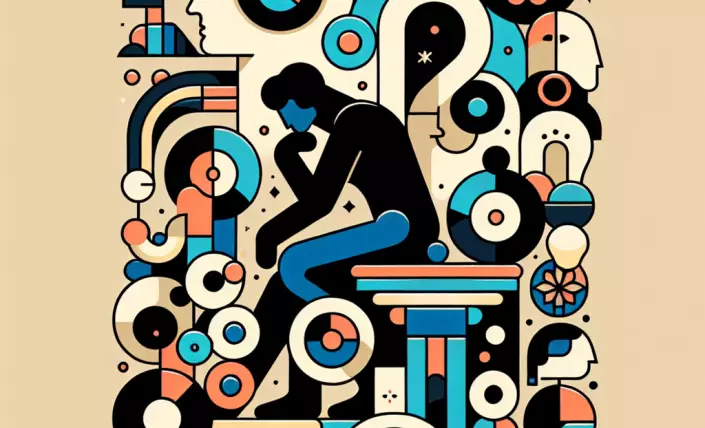In the labyrinthine corridors of human consciousness, the concept of the unconscious stands as one of the most enigmatic and profound. The unconscious mind, a realm of thoughts, memories, and impulses that lies beneath our conscious awareness, plays a pivotal role in shaping human behavior and personality. To delve into the depths of the unconscious is to embark on a journey of self-discovery, a journey that challenges the very essence of who we believe ourselves to be. This exploration is not merely a psychological endeavor but a philosophical one, raising questions about identity, free will, and the nature of reality itself.
The unconscious is often perceived as a shadowy domain of repressed desires and forgotten memories, a repository of all that we choose to ignore or suppress. Yet, it is much more than a mere dumping ground for unwanted thoughts. It is a dynamic and vital component of the psyche, teeming with creativity, potential, and insight. The unconscious communicates with us through symbols, dreams, and intuitive flashes, offering glimpses of truths that our rational minds might overlook. It is here that we find the archetypes, the universal symbols and motifs that Carl Jung posited as the building blocks of our collective unconscious. These archetypes, such as the hero, the mother, and the trickster, resonate across cultures and epochs, pointing to the shared heritage of human consciousness.
Engaging with the unconscious requires a willingness to confront the unknown, to face the parts of ourselves that we might prefer to leave in the dark. It is a philosophical endeavor that demands courage and openness, as it often brings to light the contradictions and conflicts that reside within us. The unconscious serves as a mirror, reflecting back the aspects of our personality that we might not wish to acknowledge. It is through this reflection that we gain a deeper understanding of ourselves and our place in the world. This process, which Jung referred to as individuation, is the journey towards wholeness, where the conscious and unconscious aspects of the self are integrated into a cohesive whole.
At its core, the exploration of the unconscious is a philosophical inquiry into the nature of the self. It raises profound questions about identity: Are we merely the sum of our conscious thoughts, or is there a deeper essence that defines who we are? The unconscious suggests that our identity is not fixed but fluid, shaped by hidden influences and unseen forces. This realization challenges the notion of a stable, coherent self and invites us to consider the multiplicity and complexity of our inner worlds. It is a reminder that to truly know oneself is to embrace the unknown, to venture into the depths of the psyche where the conscious mind fears to tread.
In a world that often prioritizes rationality and logic, the unconscious serves as a reminder of the power of the intuitive and the instinctual. It calls upon us to listen to the whispers of our inner world, to pay heed to the symbols and images that arise from the depths of our psyche. By doing so, we open ourselves to new possibilities and perspectives, enriching our understanding of ourselves and the world around us. The journey into the unconscious is not a retreat from reality but an expansion of it, offering us the opportunity to transcend the limitations of our conscious minds and embrace the full spectrum of human experience.










